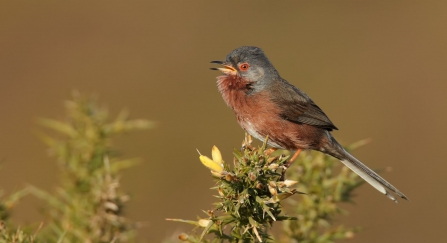Numbers of dormice recorded at nature reserves in all three counties have decreased since 2010 in a change linked to warmer winters; hotter summers could see beech trees disappear from some local areas, and there is strong evidence that caterpillars are emerging at different times of year, impacting breeding birds.
The Berks, Bucks and Oxon Wildlife Trust (BBOWT), which manages more than 80 nature reserves across the three counties, has highlighted some of these troubling cases in its latest 10-year action plan to mitigate the effects of climate change at the sites it manages. It comes as the UK prepares to host the COP26 UN climate conference in Glasgow next month.







